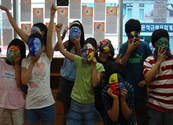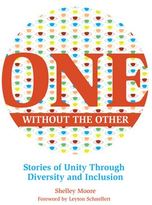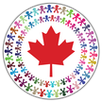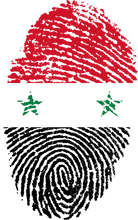Social Justice Community Project
As a community of learners, we can break systematic barriers, support equitable practices and develop education systems that support our diverse world. These goals can be achieved with shared research and collective planning and implementation that address global and local contextual needs. A place to begin exploring a social justice plan for your school, district or organization can be found here.
Creating a culture of personal and professional learning in both leadership and instructional development provides the sustainability for social justice work and the success of all. When planning for inclusion, diversity awareness, inclusion awareness and self reflection are critical. By mindfully examining and reflecting on ways people respond to diversity and the consequences of those responses, it helps to widen our ideas of community and increase social responsibility. Through these processes, understanding different ways people respond to diversity provides opportunities for greater self awareness and self actualization. One way to achieve a greater understanding of how people response to diversity is to create an ongoing collection of artifacts showing how students, teachers, administrators and community members respond to diversity. These artifacts contribute to bridging understandings and moving individuals and schools into new stages of inclusive development, from tolerating differences to adopting and adapting diverse perspectives (Goolcharan, 2017). It is not just the artifacts that achieve this, but the process of sharing stories, conducting research and engaging in rich discussions. This site has begun to gather a collection of these artifacts here and provides information about the benefits of inclusion here. There are many learning areas and tools that can develop inclusion such as the development of inclusive leadership, culturally and linguistically responsive education, critical thinking and so forth. Inclusive learning areas (diversity, inclusion, social justice) and toolkits for inclusion are always being updated by participants and can be chosen based on needs and interests. When choosing learning areas and toolkits, all processes and products should aim for inclusivity for shared understanding, decision making, implementation and revision. Toolkits can be found here. Questions? View Inclusion Canada's design and development rationale. We encourage you to email us directly to share your research, resources and strategies. Contribute to the ongoing effort for inclusive schools and communities for a diversified, collaborative, resilient society. Social Justice FrameworkInclusion ToolkitIsn't it time, we decolonized education? Access recent news, an overview of our history from 40 000 years ago til modern day and new, innovative resources and Indigenous language apps here.
|
Help our schools and communities become more inclusive, innovative, cohesive and successful. Share your. . . 1. Stories about diversity and inclusion in Canada (video, story, article, comic, poster) 2. Action Research and studies about diversity and inclusion 3. Art about diversity and inclusion 4. Information and photos about inclusive programs and projects your school or communities are implementing 5. Teaching videos related to inclusive practices and instructional strategies 6. Teaching resources, lesson plans and materials related to diversity and inclusion 7. Links to useful websites and materials about inclusion and diversity Note: When sending contributions, include name, email address and information about your contribution. You can choose to be named or contribute anonymously.
internationally. Through these processes the strength and resilience of newcomers and refugees have been assets in shaping the lives of all. Many have begun critically examining assumptions and biases about themselves and others. This provides opportunities for individual and collective growth and understanding. We highly commend Tyyskä, Blower, DeBoer, Kawai and Walcott for their article, the Syrian Refugee Crisis in Canadian Media.
Despite success stories, many communities need additional support to meet the diverse needs of newcomers, especially in schools. There is currently a greater need of support especially for the Yazidi who are coping with intergenerational cultural genocide. Canada's education system needs to ensure newcomers and their families have the necessary support to solve problems. Below are some of the comprehensive resources supporting students, families and communities: 1. Education in Emergencies from Working Group Canada 2. Resources for Understanding the Refugee Crisis by Camille Roch of Amnesty International 3. Resource Guide for Supporting Children with Refugee Experience from the Surrey Welcoming Communities Project 4. Helping Students Dealing with Trauma by the National Council of Canadian Muslims, Islamic Social Services Association & Canadian Human Rights Commission 5. Building Communities for Syrian Refugees from YMCA Canada 6. Dismantling Islamophobia by Leah Shafer of the Harvard Graduate School of Education |
All moments of success, no matter how small or big, help pave the way and provide hope. Share something positive that defined your career in education. Or something that had you jumping and leaping for joy in your classroom, school or community. Share some love here.
Share Your Opinion |
|
|
|
Diversity is Our Reality. Inclusion is Our Choice.
Winnipeg, Manitoba Canada © Copyright 2017 Inclusion Canada All rights reserved
Created, Designed, Developed and Written by L. Goolcharan |












